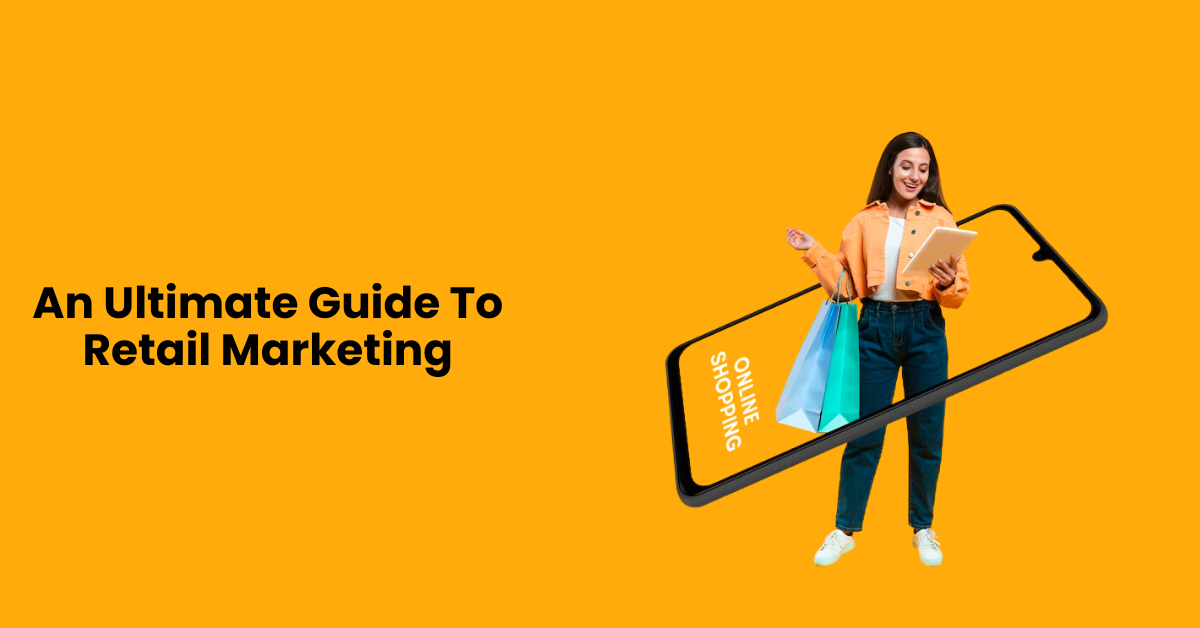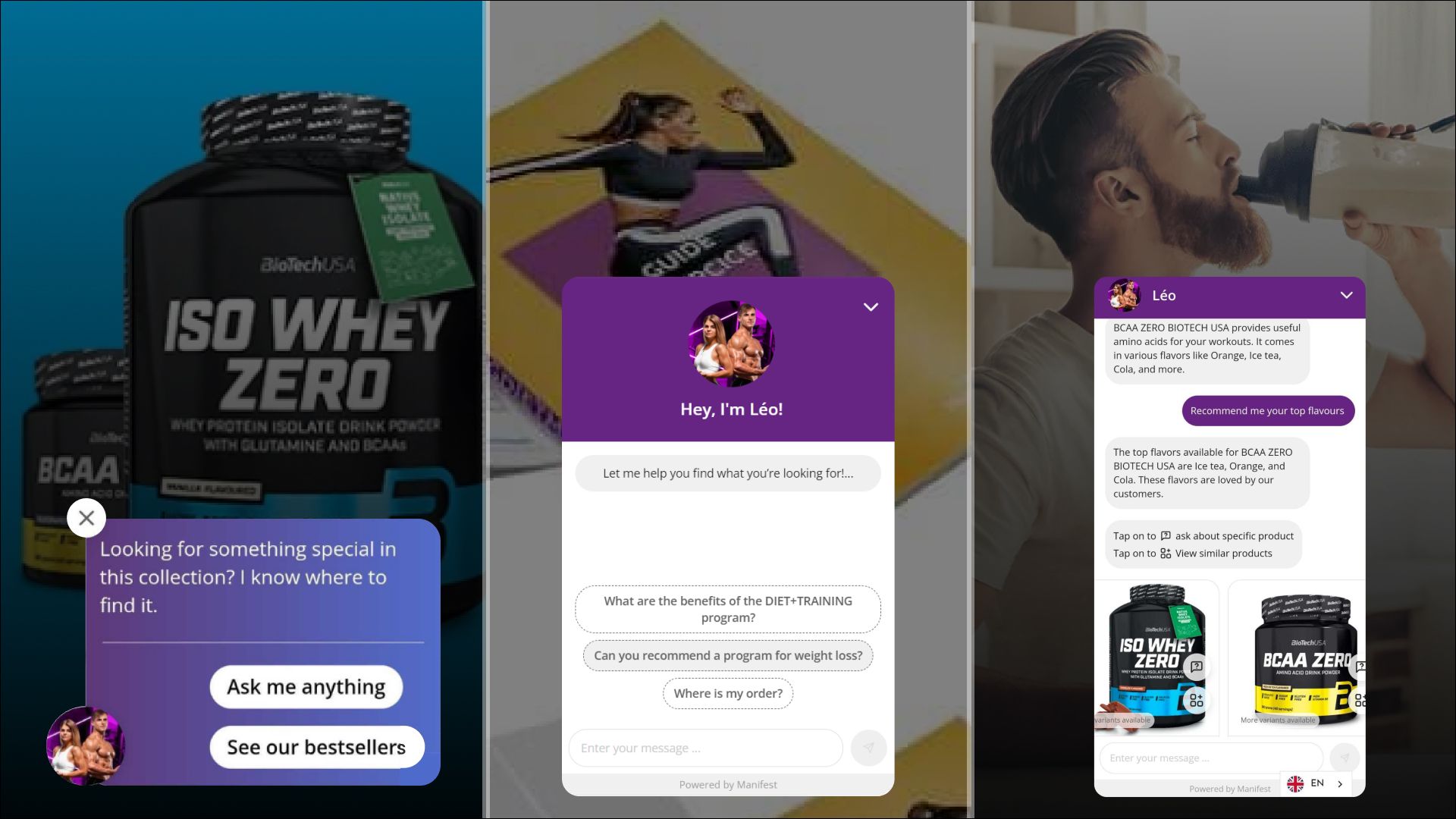Retail Marketing: The Ultimate Guide to Boost Your Sales for E-commerce

Retail marketing is the process of promoting and selling products or services to consumers in a retail setting. It is a complex and multifaceted discipline that encompasses a wide range of activities, from product development to advertising to customer service.
In the age of e-commerce, retail marketing has taken on a new dimension. Online retailers need to be able to reach and engage potential customers through a variety of digital channels, including search engines, social media, and email. They also need to create a seamless and convenient shopping experience for customers, from the moment they visit their website to the moment they receive their order.
What is retail marketing?

Retail marketing refers to the set of activities and strategies that retailers use to promote their products and services to consumers. It encompasses the various tactics and techniques employed to attract, engage, and satisfy customers while driving sales within a retail environment, whether that's in physical stores, online, or a combination of both. Retail marketing involves understanding consumer behavior, creating appealing shopping experiences, and implementing promotional efforts to achieve the retailer's business goals. It may include elements like pricing, product placement, visual merchandising, advertising, customer service, and more, all aimed at increasing sales and building brand loyalty within the retail sector.
Types of retail marketing

Retail marketing encompasses various strategies and retail marketing tactics to promote products and services to consumers. Here are some common types of retail marketing:
- In-Store Marketing: Strategies used within physical retail stores to enhance the shopping experience, including store layout, visual merchandising, signage, and product displays.
- Online Retail Marketing: Tactics used to promote products and services through e-commerce websites, including website optimization, online advertising, and email marketing.
- Social Media Marketing: Utilizing social media platforms like Facebook, Instagram, Twitter, and Pinterest to reach and engage customers through content, ads, and influencer partnerships.
- Email Marketing: Sending targeted email campaigns to customers with product recommendations, promotions, and updates to encourage purchases and build loyalty.
- Content Marketing: Creating and sharing valuable, informative content such as blog posts, videos, and guides to educate customers and promote products subtly.
- Affiliate Marketing: Partnering with affiliates (publishers or influencers) who promote products and earn a commission on sales they generate.
- Loyalty Programs: Offering rewards and incentives to repeat customers to encourage their continued patronage.
- Promotions and Discounts: Running limited-time sales, discounts, and special offers to attract and convert shoppers.
- Visual Merchandising: Creating appealing and strategic product displays in physical stores to attract attention and influence purchasing decisions.
- Event Marketing: Hosting in-store events, product launches, or pop-up shops to engage with customers and promote products.
Importance of retail marketing
Retail marketing plays a crucial role in the success of any retail business, whether it operates through physical stores, online channels, or a combination of both. Here are several key reasons highlighting the importance of retail marketing:
- Attracting Customers: Retail marketing helps attract new customers to your business. It raises awareness of your products, services, and brand, ultimately expanding your customer base.
- Increasing Sales: Effective retail marketing strategies drive sales by showcasing your products in a way that appeals to your target audience and encourages purchases.
- Building Brand Awareness: Retail marketing efforts help build and reinforce your brand's identity, making it more recognizable and memorable to consumers.
- Customer Engagement: Engaging customers through marketing initiatives, such as promotions, events, and social media interaction, fosters a sense of community and loyalty.
- Enhancing Customer Experience: Retail marketing involves improving the customer experience by optimizing store layouts, product displays, and online user interfaces.
- Competitive Advantage: Effective marketing in retail sets your business apart from competitors and positions it as a preferred choice for consumers.
- Product Promotion: Retail marketing is essential for promoting new products, seasonal items, or featured products, which may require special attention to boost sales.
- Customer Retention: By keeping in touch with existing customers through marketing, you can encourage repeat purchases and build long-term relationships.
- Data Collection and Analysis: Retail marketing often involves collecting valuable customer data, which can be analyzed to gain insights into consumer preferences and behaviors.
- Online and Offline Synergy: Marketing for retailers operating both online and offline, retail marketing ensures consistency between these channels, providing a seamless omnichannel experience for customers.
5 retail marketing strategies
Here are five practical retail marketing solutions that you can implement instantly. These retail marketing examples are the observation of the some of the popular brands:
1. Create a strong online presence
Today, more and more consumers are shopping online. That's why it's essential for retailers to have a strong online presence. This includes having a well-designed website and being active on social media.
Here are some tips for creating a strong online presence:
- Make sure your website is easy to navigate and mobile-friendly.
- Use high-quality images and videos to showcase your products.
- Write clear and concise product descriptions.
- Offer competitive prices and shipping rates.
- Make it easy for customers to checkout.
- Be active on social media and engage with your followers.
- Offer excellent customer service
Customer service is essential for any successful marketing for retail business. Customers are more likely to shop at stores where they feel valued and respected.
Here are some tips for providing excellent customer service:
- Be friendly and helpful.
- Be knowledgeable about your products and services.
- Go the extra mile to meet customer needs.
- Resolve customer complaints promptly and fairly.
- Run targeted promotions
Promotions are a great way to attract new customers and boost sales. However, it's important to target your promotions carefully so that you're reaching the right people.
Here are some tips for running targeted promotions:
- Segment your customer base and create targeted promotions for each segment.
- Promote your promotions through channels that your target audience is using.
- Track the results of your promotions and make adjustments as needed.
- Build customer loyalty programs
Customer loyalty programs are a great way to reward your repeat customers and encourage them to keep shopping at your store.
Here are some tips for building customer loyalty programs:
- Offer rewards that are valuable to your customers.
- Make it easy for customers to participate in your program.
- Track customer engagement and reward your most loyal customers.
- Use data to make informed decisions
Data can be a powerful tool for retailers. By tracking customer behavior and sales data, retailers can make informed decisions about their marketing strategies, product selection, and pricing.
Here are some tips for using data to make informed decisions:
- Collect data on customer behavior, such as website visits, purchase history, and social media engagement.
- Use analytics tools to track and analyze your data.
- Identify trends and patterns in your data.
- Use your data to make informed decisions about your marketing strategies, product selection, and pricing.
Future of retail marketing
The future of retail marketing is undeniably intertwined with the advancement of artificial intelligence (AI). AI-driven solutions are poised to revolutionize the way retailers interact with customers, optimize their operations, and boost sales. In this context, Manifest AI is a prime example of a platform that can play a pivotal role in the future of retail marketing.
The Future of Retail Marketing with AI:
- Personalization at Scale: AI enables retailers to offer personalized shopping experiences at scale. Through advanced algorithms, AI can analyze customer data and preferences, tailoring product recommendations, email campaigns, and website content to individual shoppers. This level of personalization significantly enhances the chances of conversion and customer loyalty.
- AI-Powered Chatbots: Customer support is becoming more efficient and available 24/7 with AI-powered chatbots. These bots can assist customers in real time, answer queries, and provide product recommendations, contributing to increased customer satisfaction and reduced cart abandonment.
- Dynamic Pricing Optimization: AI-driven pricing algorithms take into account real-time factors such as demand, competition, and inventory levels to optimize pricing strategies. Retailers can offer competitive prices while maximizing profitability, ensuring that products are neither overpriced nor underpriced.
- Inventory Management and Forecasting: AI can predict demand trends more accurately, leading to optimized inventory management. This means fewer stockouts and overstock situations, which can result in increased sales and minimized losses.
- Retail Marketing Automaton using Email Marketing: AI automates the process of email marketing, sending personalized recommendations, product updates, and cart abandonment reminders. This increases customer engagement and drives repeat purchases.
- Ad Campaign Optimization: AI enhances the efficiency of advertising campaigns. It optimizes ad spend by targeting the right audience with the right message at the right time, thereby yielding a higher return on investment (ROI) for retail marketing campaigns.
Manifest AI and Boosting Sales with Retail Marketing

Manifest AI is a prime example of a platform that can empower retailers with AI-driven solutions. It offers a suite of tools and capabilities, such as personalized discount coupons, multilingual customer support, and dynamic pricing optimization. These features align perfectly with the future of retail marketing, as they contribute to enhanced customer experiences, increased sales, and operational efficiency.
- Personalized Discount Coupons: Manifest AI generates personalized discount coupons based on customer behavior and preferences. This encourages repeat purchases, fosters customer loyalty, and directly contributes to boosting sales.
- Multilingual Customer Support: In a globalized marketplace, multilingual customer support is essential. Manifest AI facilitates interactions with customers in their preferred languages, breaking language barriers and enabling retailers to reach diverse audiences and expand their market reach.
- Dynamic Pricing Optimization: Dynamic pricing is a core component of future retail marketing. Manifest AI employs AI algorithms to optimize pricing, ensuring that retailers remain competitive while maximizing profits.
Conclusion
In this comprehensive guide, we have covered everything you need to know about retail marketing for e-commerce, from the different types of channels to how to develop a successful strategy.
We have also discussed the importance of images in retail marketing and how to use them to enhance your content and boost sales.
If you are looking to boost your sales and grow your e-commerce business, retail marketing is essential. By following the tips and strategies in this guide, you can develop effective marketing campaigns that will help you achieve your goals.
What is a retail marketing mix?
A retail marketing mix is a set of strategic elements that retailers combine to influence and optimize customer buying decisions. It typically includes the 4Ps: Product, Price, Place, and Promotion, which help retailers design effective marketing strategies to attract customers and drive sales.
What are retail marketing tactics?
Retail marketing tactics are strategies and methods used by retailers to promote products and engage customers. These include pricing strategies, visual merchandising, promotions, loyalty programs, and various advertising channels like email marketing and social media.

.png)
